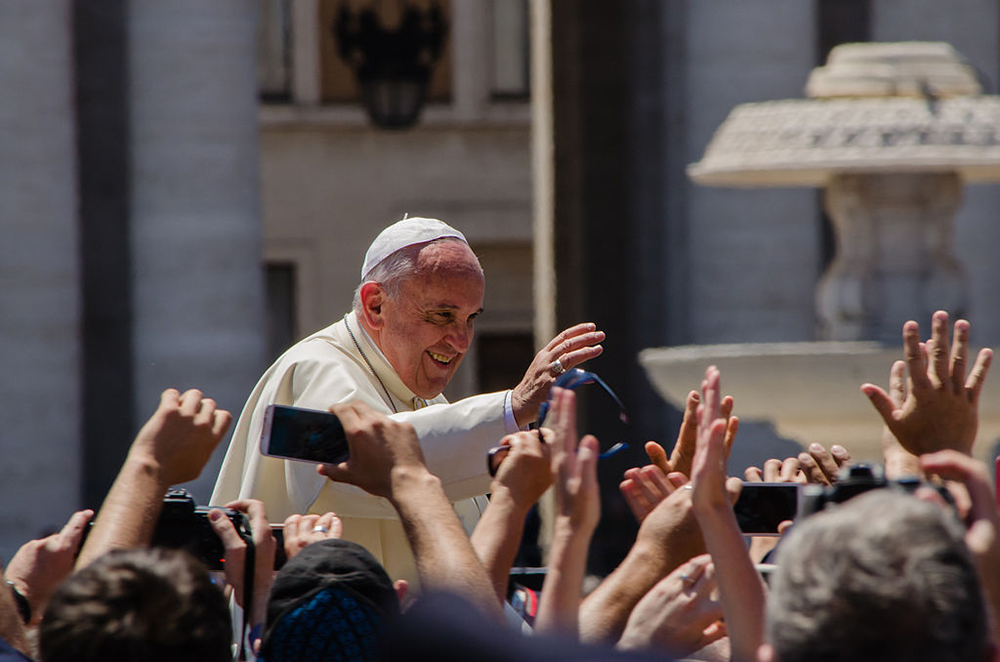Speaking to grassroots organizer in Bolivia, Pope Francis garnered global attention by calling the “unfettered pursuit of money” the “dung of the devil.” It was a shot heard round the world as media outlets called out the pope for being a ‘Socialist’ and even go as far as painting the holy pontiff a Marxist.
SENSATIONALIZING THE POPE
The pope’s speech was undoubtedly important in many aspects, but this event only showed the sensationalist tendencies of the mainstream media and its insatiable hunger to pin an exciting story to an even more exciting headline. The pope did not explicitly attack Capitalism but did criticize the state of our global economic system.
Pope Francis is certainly an interesting pope, not only because he is the first pope in the history of the Catholic Church to come from Latin America, but because of his progressive views on politics and economics. The pope’s criticisms of war profiteers, bankers, politicians, etc. have all been considered politically ‘liberal’ by some, and ‘radical’ by others.
WELCOMING THE POPE
While a vast majority of Americans have welcomed the pope’s recent visit to Washington D.C. and Philadelphia, others such as Republican Representative Paul Gosar from Arizona have boycotted the pope for his belief in the existence of man-made climate change. Gosar has called out the pope for promoting “questionable science” even though 97 percent of scientists believe climate change is human-made and widely accepted as a real threat to the human species.
It seems many people, whether they accept or criticize the pope’s views on social justice and the environment, wonder how the pope became concerned about social justice and the welfare of the working poor. However, it is likely his views were greatly influenced by the politics and religion of his home.
INFLUENCES FROM HOME
Argentina is the home country for the pope, where he was born as Jorge Mario Bergoglio. Pope Francis was ordained as a Catholic priest during the late 1960s and early 1970s. The second half of the 20th century was a notorious time for Argentina and Latin America as a whole. Augusto Pinochet came to power in Chile when the CIA helped the Chilean military overthrow democratically elected president Salvador Allende in 1973. Manuel Noriega, a notorious Panamanian dictator, came into power in 1983 with the help of the CIA. The Sandinistas overthrew the dictator of Nicaragua, ending a 46 year dictatorship by the Somoza family and Argentina was fighting its own “Dirty War.” The political turmoil that has wracked Latin America, and the pope’s own country have been instrumental in shaping the political views of some many of its inhabitants.
Catholicism is the most popular religion in Latin America, and the rise of Liberation Theology, a movement calling for the poor to instigate social change, marked the intersection of politics and religion. Although Pope Francis does not explicitly support liberation theology, his actions have garnered it increasing popular support. Its doctrines and the people associated with it had the most significant impact on the historical narrative of Latin America. It is no doubt the great political and economic instabilities of Latin America, notably Argentina during the 1970s and 1980s, had at least a modicum of influence on Pope Francis’ current views on world affairs.







